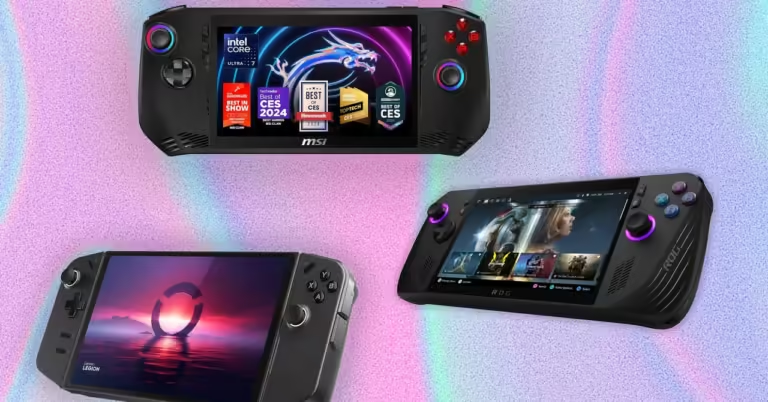Microsoft also requires that you bundle some software with your license, so Microsoft Teams, Office 365 (including Word, Excel, PowerPoint), (check your notes) and more are inexplicably included in the license… Microsoft ClipChamp … It’s a device that is ostensibly a gaming handheld. I know everyone has different preferences, but I think it’s safe to say that 95% of people who are interested in the ROG Ally X aren’t going to be interested in its middling video editing capabilities.
Hope on the horizon
Later in 2023, Microsoft announced a preview of a “Compact Mode” version of the Xbox app that gives the Windows-running gaming handheld a Steam Deck-like interface designed primarily for controller input, and it’s already seen some pretty significant updates, most notably a Jump Back In feature that lets players quickly launch into recently played games.
While the feature is known as “the way it’s always worked” on competing devices like Steam Deck and the Switch, it’s still a welcome addition, even though apps like Asus’ Armoury Crate already do this. And for now, the Xbox app only shows games purchased through Microsoft, which means my Jump Back In… SolitaireI think it’s a small step.
There are rumors that Microsoft is working on a gaming handheld, and if this is true, it would be great news as it means that Microsoft is likely to continue optimizing Windows for this area. terrible This is good news for competitors if they too cannot benefit from the work.
Put more simply, it’s not hard to guess whether an official Xbox gaming handheld with an interface comparable to a living room console and capable of running all Windows-based games, or a flaky handheld with a glued-down interface, is more likely to be successful.
That’s not likely to happen. Microsoft has so far failed to compete by selling console hardware. Instead, it has adopted an “Xbox anywhere” strategy: While Nintendo and Sony sell boxes that run their games, Microsoft wants Xbox to be a platform where you can play games on any desktop, laptop, tablet, phone or TV you own.
I would argue that none of these are as important as getting the gaming handheld right. The Switch showed how much people want to take their games with them, and Steam Deck showed that even some of the major AAA games can run just fine on portable hardware. If Microsoft wants Xbox to be ubiquitous, they might need to adopt the model Google has with Android. Google makes and sells its own Android phones, but allows competitors to build on its platform, and often ends up being beaten by its competitors in games. Google still profits from its services running on competitors’ devices, so Google wins either way. A similar strategy could work for an Xbox handheld built on a working platform that Microsoft shares with third parties.
Currently, Windows handhelds are struggling. Even the best options consume more power, have less stable interfaces, and are more expensive than devices like the Switch or Steam Deck. With every modest improvement in these devices, Windows’ impenetrable walls become more and more apparent. Unless Microsoft takes action, this status quo doesn’t seem likely to change anytime soon.

